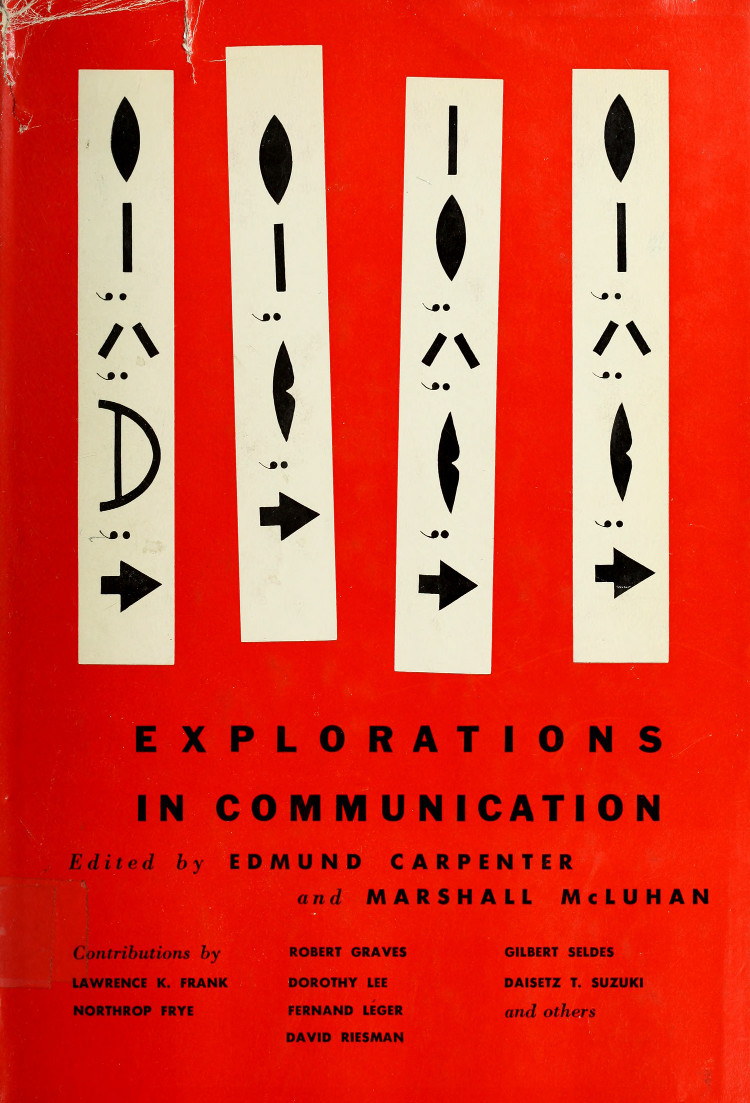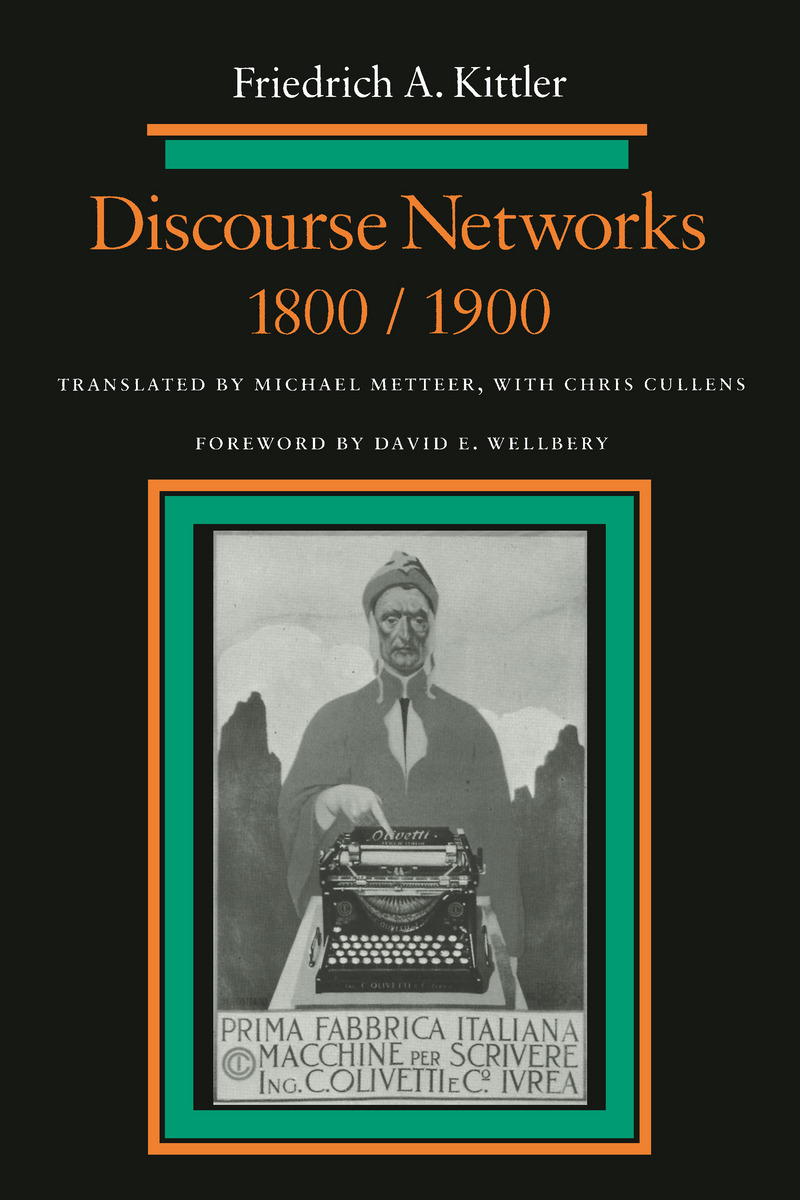Wolfgang Ernst: Digital Memory and the Archive (2012)
Filed under book | Tags: · archive, art, communication, computing, culture, data, history, information, internet, knowledge, machine, media, media archeology, media studies, media theory, memory, photography, radio, sound, storage, technology, television, temporality, time

“In the popular imagination, archives are remote, largely obsolete institutions: either antiquated, inevitably dusty libraries or sinister repositories of personal secrets maintained by police states. Yet the archive is now a ubiquitous feature of digital life. Rather than being deleted, e-mails and other computer files are archived. Media software and cloud storage allow for the instantaneous cataloging and preservation of data, from music, photographs, and videos to personal information gathered by social media sites.
In this digital landscape, the archival-oriented media theories of Wolfgang Ernst are particularly relevant. Digital Memory and the Archive, the first English-language collection of the German media theorist’s work, brings together essays that present Ernst’s controversial materialist approach to media theory and history. His insights are central to the emerging field of media archaeology, which uncovers the role of specific technologies and mechanisms, rather than content, in shaping contemporary culture and society.
Ernst’s interrelated ideas on the archive, machine time and microtemporality, and the new regimes of memory offer a new perspective on both current digital culture and the infrastructure of media historical knowledge. For Ernst, different forms of media systems—from library catalogs to sound recordings—have influenced the content and understanding of the archive and other institutions of memory. At the same time, digital archiving has become a contested site that is highly resistant to curation, thus complicating the creation and preservation of cultural memory and history. ”
Edited and with an Introduction by Jussi Parikka
Publisher University of Minnesota Press, 2012
Volume 39 of Electronic Mediations
ISBN 0816677670, 9780816677672
265 pages
Reviews: Liam Cole Young (Reviews in Cultural Theory, 2013), Peter Ward (Information & Culture, 2014).
For more from Wolfgang Ernst see Monoskop wiki.
Comment (0)Edmund Carpenter, Marshall McLuhan (eds.): Explorations in Communication: An Anthology (1960–) [EN, ES]
Filed under book | Tags: · communication, communication technology, language, mass media, media, media theory, print, technology, television

“This book explores the form and dynamics of communication to discover how it works – how human beings exchange feelings, facts, fancy. What makes words, sentences and grammars meaningful? What is the difference between the private world of reading and the instant “togetherness” of television audiences? How does the inner structure of communication vary from society to society?
These essays by world-famed scholars and artists cover the whole range of communications media — from skin touch to voice inflection, from newsprint to electronic devices, from primitive grammars to films. Here we step outside the various media by examining one through another. Print is seen from the perspective of electronics; television is analyzed through print — and thus literacy’s role in shaping man is brought into sharp new focus.
The contemporary revolution in the packaging and distribution of ideas and feelings makes a new view of communication imperative. To give voice to such views, the journal Explorations was begun in Toronto in 1953, financed by the Ford Foundation and the Toronto Telegram. From the start, the magazine won high praise from the academic world. The articles in this book, all of which appeared in Explorations, represent some of the most original research now in print on problems that will confront us for many years to come.” (from front flap)
With contributions by Ray L. Birdwhistell, Edmund Carpenter, H. J. Chaytor, Lawrence K. Frank, Northrop Frye, Arthur Gibson, Sigfried Giedion, Stephen Gilman, Robert Graves, Stanley Edgar Hyman, Dorothy Lee, Fernand Léger, Marshall McLuhan, David Riesman, W. R. Rodgers, Gilbert Seldes, Jean Shepherd, Daisetz T. Suzuki, Jacqueline Tyrwhitt.
Publisher Beacon Press, Boston, 1960
Issue 218 of Beacon series in Contemporary Communications
210 pages
via Archive.org
Explorations in Communication: An Anthology (hi-res, 181 MB, no OCR), Lower-res version (67 MB, OCR, via Steve McLaughlin), Other formats
El aula sin muros investigaciones sobre técnicas de comunicación (Spanish, trans. Luis Carandell, 2nd ed., 1968/1974, added on 2014-3-6)
Friedrich A. Kittler: Discourse Networks 1800/1900 (1985–) [German, English]
Filed under book | Tags: · communication, discourse, history of literature, language, literary theory, literature, media, media archeology, media technology, media theory, philosophy, psychoanalysis, psychophysics, technology, writing

“This is a highly original book about the connections between historical moment, social structure, technology, communication systems, and what is said and thought using these systems–notably literature. Friedrich Kittler focuses on the differences between ‘discourse networks’ in 1800 and in 1900, in the process developing a new analysis of the shift from romanticism to modernism. The artful structure of the book begins with Goethe’s Faust and ends with Valéry’s Faust. In the 1800 section, the author discusses how language was learned, the emergence of the modern university, the associated beginning of the interpretation of contemporary literature, and the canonization of literature. Among the writers and works Kittler analyzes in addition to Goethe’s Faust are Schlegel, Hegel, E.T.A. Hoffman’s The Golden Pot, and Goethe’s Tasso. The 1900 section argues that the new discourse network in which literature is situated in the modern period is characterized by new technological media–film, the photograph, and the typewritten page–and the crisis that these caused for literary production. Along the way, the author discusses the work of Nietzsche, Gertrude Stein, Mallarmé, Bram Stroker, the Surrealists, Rilke, Kafka, and Freud, among others.”
Aufschreibesysteme 1800/1900
First published in 1985
Third, completely revised edition
Publisher Wilhelm Fink Verlag, Munich, 1995
ISBN 3770528816, 9783770528813
524 pages
Discourse Networks, 1800/1900
Translated by Michael Metteer, with Chris Cullens
Foreword by David E. Wellbery
Publisher Stanford University Press, 1990
ISBN 9780804720991
496 pages
Reviews: Franz Futterknecht and David Wellbery (Poetics Today, 1987, EN), Robert C. Holub (German Quarterly, 1987, EN), Thomas Sebastian (MLN, 1990, EN).
Wikipedia (DE)
Publisher (DE)
Publisher (EN)
Aufschreibesysteme 1800/1900 (German, 3rd ed., 1985/1995, removed on 2024-2-6 upon request from Brill)
Discourse Networks, 1800/1900 (English, 1990, updated to the full book on 2014-1-30 via poshumano, updated to single-page OCR’d version on 2014-1-31 via Marcell Mars)
Online version of Index of persons (at Monoskop wiki)
Comments (3)
